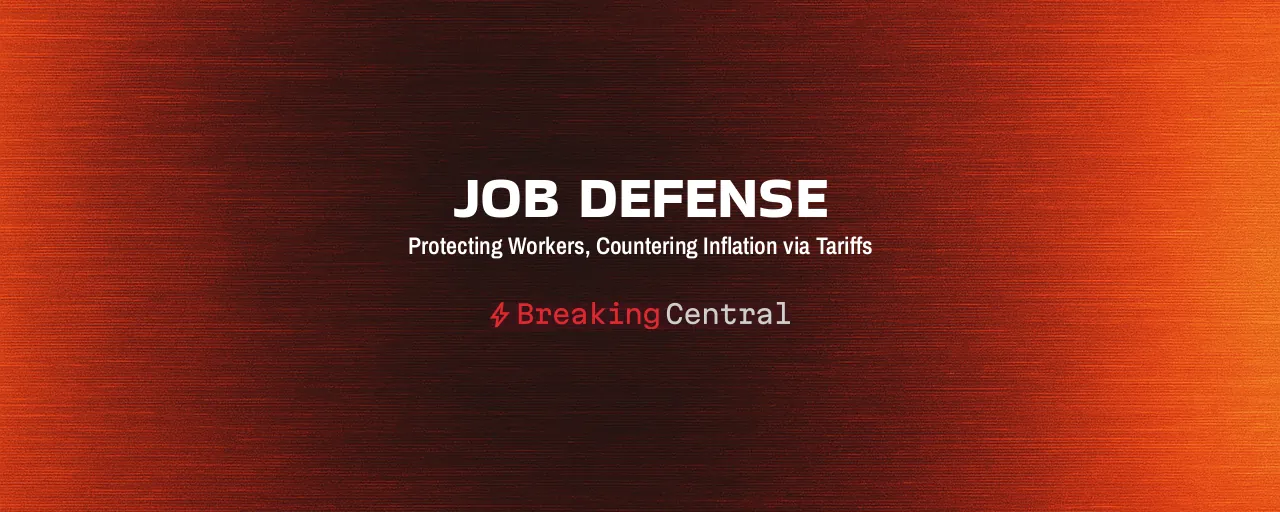Standing Up for America's Workers
America faces a critical choice. Goldman Sachs predicts new tariffs will drive inflation, with core rates climbing to 3.5% by year-end. Clothing, food, and car prices could rise, adding pressure on families. Yet this warning misses the larger point that tariffs protect our industries and workers from foreign exploitation. Decades of unbalanced trade have eroded American jobs. The time to act is now.
The projected costs, apparel up 17%, vehicles 8.4%, and households facing $2,100 to $3,800 in losses, sound daunting. Foreign competitors, however, often lower prices to maintain market share, softening the blow. Tariffs aim to restore fairness for American manufacturers, ensuring our economy thrives. Why continue letting other nations undermine our workforce?
History supports this approach. From the 19th century's industrial boom to the 2018 steel tariffs, America has used trade barriers to build strength. The Congressional Budget Office projects a modest 0.4% annual inflation increase through 2026. That's a fair trade for revitalizing manufacturing and securing jobs.
Those who prioritize consumer prices paint tariffs as a consumer burden, but they ignore the devastation of unchecked imports. Since the 1990s, millions of jobs vanished to cheap foreign goods. Tariffs offer a chance to reverse that trend, prioritizing American workers over short-term price concerns.
President Trump's leadership, reaffirmed in his 2024 re-election, underscores this commitment. His trade policies target nations like China, which exploit global rules to flood our markets. Tariffs are economic tools, and they also declare America's resolve.
Inflation Worries Miss the Bigger Picture
Some analysts claim tariffs hit low-income families hardest, raising prices without boosting manufacturing. They cite studies showing full price pass-throughs. Yet evidence suggests foreign producers absorb much of the cost to stay competitive, as seen in earlier trade disputes. The Yale Budget Lab reports a 1% economy-wide price rise, far less than feared.
Global disruptions, like the Russia-Ukraine conflict or Red Sea shipping crises, have spiked freight costs by 70%, contributing more to inflation than tariffs. Why scapegoat trade policies when supply chain chaos drives prices? Tariffs empower us to shield our economy from such vulnerabilities.
The Federal Reserve, maintaining rates at 4.25 to 4.50%, has cut inflation from 9% in 2022 to 3% in 2025. Tariffs may slightly elevate prices but also temper spending, mimicking monetary restraint. Gallup polls show Republican voters view tariffs as job creators and revenue boosters. Their confidence is well-placed.
Globalist Policies Fail American Interests
Supporters of open trade argue tariffs disrupt global harmony and spark retaliation. They push for multilateral deals, claiming consumers suffer most. But global trade has favored nations like China, which subsidize exports while blocking our goods. The US-China trade war cost 220,000 jobs, yet decades of open markets destroyed millions more.
These advocates overlook how foreign subsidies crush American industries. Their preferred trade agreements have failed to restore manufacturing or stem job losses. With over 3,000 protectionist measures globally in 2024, other nations act decisively. Why should America remain passive?
Past crises, like the 1973 oil embargo or 2014 Russia sanctions, drove inflation far beyond tariffs' impact. Today's measures are strategic, aimed at rebuilding industries without global fallout. The mere threat of tariffs has forced trade concessions, proving their leverage.
Building a Resilient American Future
Tariffs represent a courageous stand for America's economic sovereignty. Temporary price increases pale against the benefits of a thriving manufacturing sector. Michigan surveys reveal Republican voters expect minimal inflation, trusting tariffs to reshape trade in our favor.
Unrestrained free trade has gutted communities and left us reliant on foreign supply chains. Central banks, including the Fed and ECB, manage inflation effectively. We have the tools to handle price pressures without abandoning bold trade policies. The real risk lies in inaction.
America's prosperity hinges on prioritizing its workers and industries. Tariffs counter unfair global practices, protect jobs, and pave the way for long-term strength. The cost of standing firm is small compared to the price of continued economic surrender.
